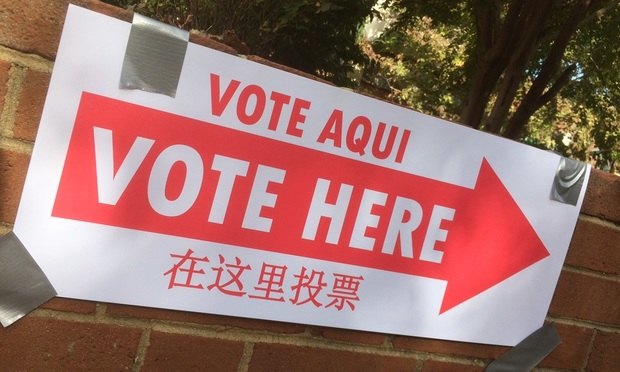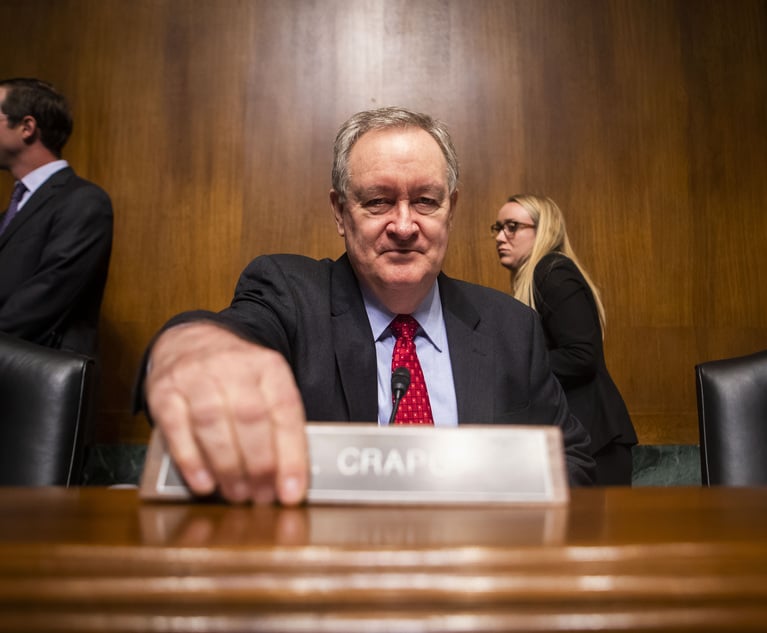Judges Will Be Able to Talk About Certain Cases, as Gag Rule Is Amended
"Voters will be able to receive and evaluate all information before casting their ballots in judicial elections, including recalls," Justice Richard Fybel, chairman of the Advisory Committee on the Code of Judicial Ethics, said in a statement.
June 15, 2020 at 04:18 PM
3 minute read
 Credit: Mike Scarcella/ ALM
Credit: Mike Scarcella/ ALM
California judges will soon be able to talk about pending cases that become hot topics in election or recall campaigns without running afoul of state judicial canons.
In a filing recorded Monday, the state Supreme Court approved a series of amendments to the California Code of Judicial Ethics, including the language that loosens restrictions on judges speaking about current matters. The changes take effect on July 1.
Although Judge Aaron Persky was never specifically mentioned in the proposed rule change, that particular amendment was a nod to the former Santa Clara County Superior Court judge. Voters recalled Persky in 2018 after he sentenced a Stanford University swimmer found guilty of sexual assault to six months in jail. Persky's allies said he couldn't respond directly to criticism of his sentence because of the existing gag rule.
"Voters will be able to receive and evaluate all information before casting their ballots in judicial elections, including recalls," Justice Richard Fybel of the 4th District Court of Appeal, chairman of the Advisory Committee on the Code of Judicial Ethics, said in a statement.
"They will be able to hear a judge defend a ruling when that ruling is at issue. The amendments permit a more open and fair exchange of all views at a time when contested judicial elections and recalls have become more common," Fybel said.
The amended rules will allow judges to speak about cases only when they are the subject of criticism in election or recall campaigns and only if "the comment would not reasonably be expected to affect the outcome or impair the fairness of the proceeding."
The rule change had the backing of the California Judges Association and the Alliance of California Judges.
The court also approved other changes to the canons:
• Judges will be barred from criticizing businesses, products or services on internet sites such as Yelp or TripAdvisor "if it is reasonably likely that the judge can be identified as a judge."
• New language clarifies that judges can raise funds from retired judges who are not serving in the temporary assigned judges program, practicing law or providing mediation or arbitration services.
• Advisory committee commentary included with Canon 5 now says judges will be allowed to oppose, and not just endorse, judicial candidates.
This content has been archived. It is available through our partners, LexisNexis® and Bloomberg Law.
To view this content, please continue to their sites.
Not a Lexis Subscriber?
Subscribe Now
Not a Bloomberg Law Subscriber?
Subscribe Now
NOT FOR REPRINT
© 2025 ALM Global, LLC, All Rights Reserved. Request academic re-use from www.copyright.com. All other uses, submit a request to [email protected]. For more information visit Asset & Logo Licensing.
You Might Like
View All
Senator Plans to Reintroduce Bill to Split 9th Circuit

California's Chief Justice Starts Third Year With Questions About Fires, Trump and AI
4 minute read

Fight Over Amicus-Funding Disclosure Surfaces in Google Play Appeal
Trending Stories
- 1Lawyers' Reenactment Footage Leads to $1.5M Settlement
- 2People in the News—Feb. 4, 2025—McGuireWoods, Barley Snyder
- 3Eighth Circuit Determines No Standing for Website User Concerned With Privacy Who Challenged Session-Replay Technology
- 4Superior Court Re-examines Death of a Party Pending a Divorce Action
- 5Chicago Law Requiring Women, Minority Ownership Stake in Casinos Is Unconstitutional, New Suit Claims
Who Got The Work
J. Brugh Lower of Gibbons has entered an appearance for industrial equipment supplier Devco Corporation in a pending trademark infringement lawsuit. The suit, accusing the defendant of selling knock-off Graco products, was filed Dec. 18 in New Jersey District Court by Rivkin Radler on behalf of Graco Inc. and Graco Minnesota. The case, assigned to U.S. District Judge Zahid N. Quraishi, is 3:24-cv-11294, Graco Inc. et al v. Devco Corporation.
Who Got The Work
Rebecca Maller-Stein and Kent A. Yalowitz of Arnold & Porter Kaye Scholer have entered their appearances for Hanaco Venture Capital and its executives, Lior Prosor and David Frankel, in a pending securities lawsuit. The action, filed on Dec. 24 in New York Southern District Court by Zell, Aron & Co. on behalf of Goldeneye Advisors, accuses the defendants of negligently and fraudulently managing the plaintiff's $1 million investment. The case, assigned to U.S. District Judge Vernon S. Broderick, is 1:24-cv-09918, Goldeneye Advisors, LLC v. Hanaco Venture Capital, Ltd. et al.
Who Got The Work
Attorneys from A&O Shearman has stepped in as defense counsel for Toronto-Dominion Bank and other defendants in a pending securities class action. The suit, filed Dec. 11 in New York Southern District Court by Bleichmar Fonti & Auld, accuses the defendants of concealing the bank's 'pervasive' deficiencies in regards to its compliance with the Bank Secrecy Act and the quality of its anti-money laundering controls. The case, assigned to U.S. District Judge Arun Subramanian, is 1:24-cv-09445, Gonzalez v. The Toronto-Dominion Bank et al.
Who Got The Work
Crown Castle International, a Pennsylvania company providing shared communications infrastructure, has turned to Luke D. Wolf of Gordon Rees Scully Mansukhani to fend off a pending breach-of-contract lawsuit. The court action, filed Nov. 25 in Michigan Eastern District Court by Hooper Hathaway PC on behalf of The Town Residences LLC, accuses Crown Castle of failing to transfer approximately $30,000 in utility payments from T-Mobile in breach of a roof-top lease and assignment agreement. The case, assigned to U.S. District Judge Susan K. Declercq, is 2:24-cv-13131, The Town Residences LLC v. T-Mobile US, Inc. et al.
Who Got The Work
Wilfred P. Coronato and Daniel M. Schwartz of McCarter & English have stepped in as defense counsel to Electrolux Home Products Inc. in a pending product liability lawsuit. The court action, filed Nov. 26 in New York Eastern District Court by Poulos Lopiccolo PC and Nagel Rice LLP on behalf of David Stern, alleges that the defendant's refrigerators’ drawers and shelving repeatedly break and fall apart within months after purchase. The case, assigned to U.S. District Judge Joan M. Azrack, is 2:24-cv-08204, Stern v. Electrolux Home Products, Inc.
Featured Firms
Law Offices of Gary Martin Hays & Associates, P.C.
(470) 294-1674
Law Offices of Mark E. Salomone
(857) 444-6468
Smith & Hassler
(713) 739-1250






